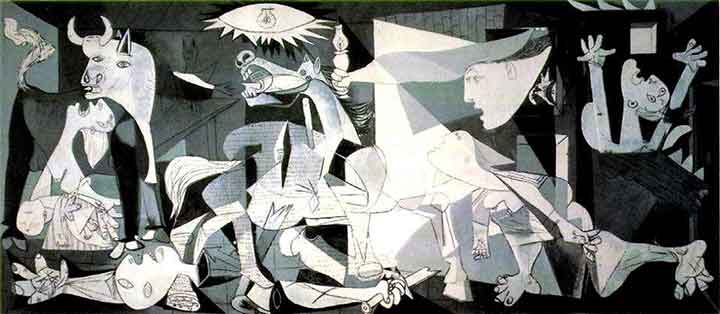Dear Artistic Muse,
Every day since the election results came in, I have been sitting at a stupor at my desk. Nothing comes. No words, no emotions. Certainly no characters. Just defeat. Muse, you aren’t tapping me on the shoulder or whispering intently in my ear. Because what does it matter to write about someone else’s life when all of our own are so decimated? How can I care about work when a friend, crying, told me how worried she is for her daughter, who is transgender, when no one in my family can sleep, because astonishingly, a lunatic dictator is in office, and he’s bringing in all his friends?
I can’t totally escape the writing world because I’m on book tour now for Cruel Beautiful World. En route to events, I talk to all the Uber and Lyft drivers about the election, but it dismays me that one driver did not even register to vote, and another, a Latino, tells me defensively that “A lot of Latinos supported Trump.” I try to stay calm. “Why?” I ask. “Why did you vote for him?” I tell him calmly that I really want to know, I really want to understand, and he just shrugs.
At readings, people look beaten down, so I try to make what I say matter. In a way, it’s lucky for me that Cruel Beautiful World has something to say about our present situation. It’s about how the hope of the 60s crashed down into the muck of the 1970s, eerily mirroring what is going on now, that terrible disconnect, that fear, that hopelessness. History is on repeat now, and this time, there is a skip in the recording and it sucks even more.
But while I can talk about art and writing and my book, in my hotel at night, on the plane, I still can’t write a word. And I know that it’s not just me who can’t write or create. My other writer friends have all been sledge-hammered, too. I tell myself that if I can’t write, I can do other things. I tend to be the kind of person who thinks I can fix what is wrong, and even though I know I probably cannot, it’s that call to action that makes me feel better. That gives me hope. We writers and friends tweet petitions to each other to sign. We share and re-share John Oliver’s video about how this is not normal, how we can never let it be normal. Each day, there’s some new horror. The KKK-approved Stephen Bannon getting an appointment. Paul Ryan insisting he’s going to gut Medicare and Social Security, and forget about the EPA. Lately, Trump supporters on Twitter are digging up tweets I wrote to Trump supporters two years ago and attacking them, but really, it’s nothing compared to the pre-election tweets when they used my photograph to harass and threaten me. I was on “the list” they told me, and I wasn’t to forget it.
Believe me. I haven’t forgotten.
Sometimes I think that we urban democrats and rural republicans need some way to experience one another’s lives. My son used to watch and love this show, whose name I forget, about these kids who would exchange lives with other kids and then talk about the experience. My favorite episode was about a farm kid who was terrified of going to the city. She became astonished and disturbed that people in NYC had take-out for dinner and had to pick up dog poop, but her urban counterpart, who had worried that rural life would be boring and judgmental, loved working with horses and on the farm. They each went back to their lives at the end of the show, but they had come to understand each other’s needs, at least.
But, of course there is the question, can we understand the needs of the KKK or a Stephen Bannon? Do we want to? How do you talk to someone, as author Arlie Hochschild did in Strangers in our Own Land, who feels that it doesn’t matter that the environment is poisoned, because that’s just for now, and soon everyone will go to Heaven where there is clean air and pure waters, and that’s forever. Should we even try? Isn’t it better to bare witness? To give up your seat for the black woman on the NYC subway who was actually told by a man-spreading young person, “Shut up, I don’t have to do anything for you anymore”?
Lately, I’ve felt flickers of words, like seeds, inside of me. But sitting down to write something that isn’t my name on a petition feels wrong somehow. How can I think about characters and moral choices when dark times are covering us like a wing? But then again, how can I not? My niece and my friend Hillary, a talented novelist, reminds me that Picasso’s response to a terrible war was to paint Guernica, that Angels in America came out of the AIDS crisis. She said that maybe writing is a way of winning, of being true to some of what matters—and that includes art.
Words matter. Maybe they themselves cannot change the world, but they can give us help. They can sharpen our empathy and our resolve, and maybe if we are lucky, they can do the same for others.



